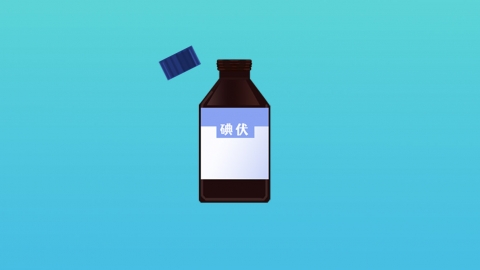Can povidone-iodine kill pubic lice?
Under normal circumstances, povidone-iodine cannot kill pubic lice. The detailed explanation is as follows:

Pubic lice are parasites that mainly infest the pubic hair and body hair around the anus, feeding on human blood. These lice attach tightly to the hair shafts, and their living environment is relatively unique; their eggs are also firmly attached to the base of the hair follicles. Povidone-iodine is an iodine-containing disinfectant primarily used for disinfection of the skin and mucous membranes. It is effective against bacteria, viruses, fungi, and other microorganisms. However, its mechanism of action does not apply to parasites like pubic lice. Povidone-iodine cannot penetrate deeply into the hair follicles to kill the parasites and therefore does not have a direct killing effect on pubic lice.
To eliminate pubic lice, it is necessary to follow medical advice and use medications specifically targeting pubic lice, such as sulfur and boric acid ointment, Qingpeng ointment, benzyl benzoate lotion, etc. These medications can effectively kill both adult pubic lice and their eggs. At the same time, it is also essential to thoroughly wash and disinfect the patient's clothing, bed sheets, and other closely contacted items to prevent reinfestation.
When dealing with pubic lice, individuals should avoid attempting inappropriate treatments on their own. Instead, they should seek timely medical attention and undergo proper treatment under a doctor's guidance.







